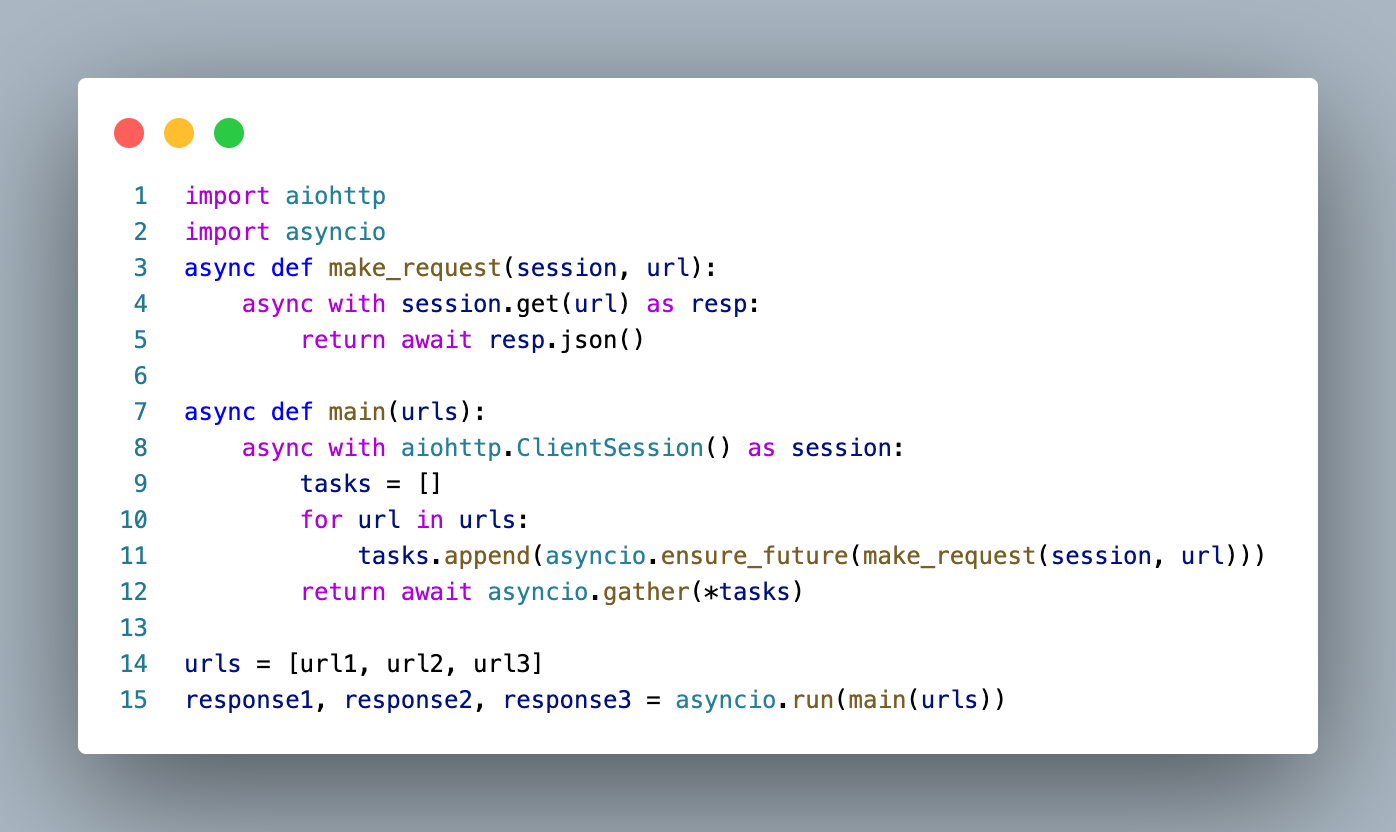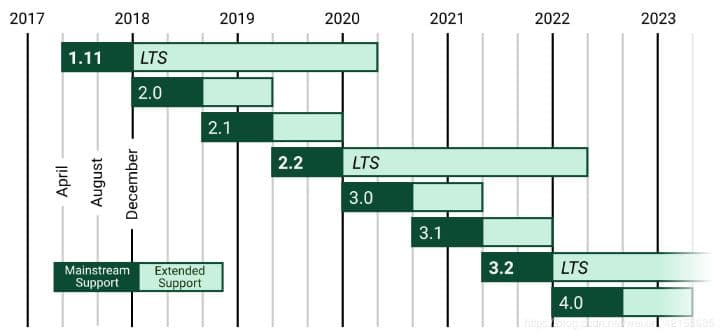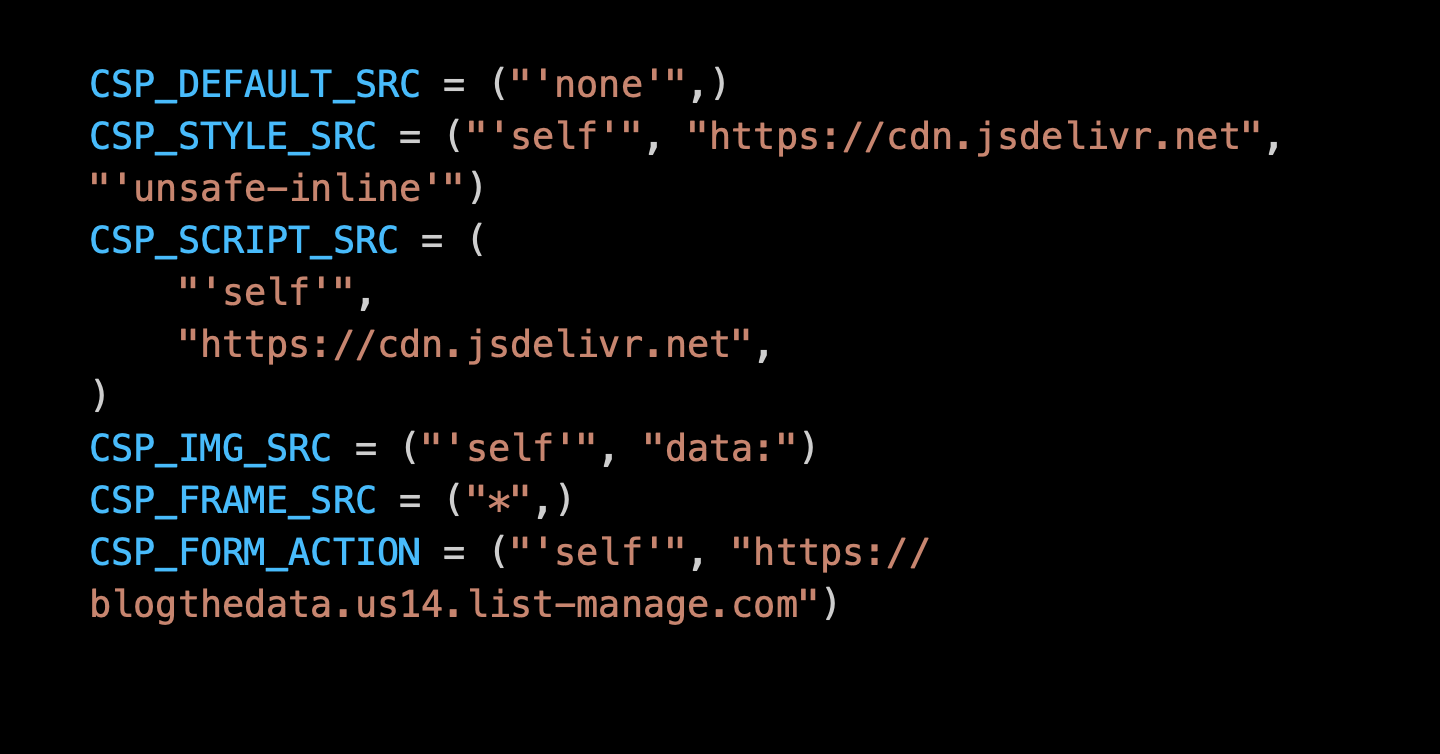The blog roadmap page makes several synchronous REST calls to the GitHub API to fetch issues. I thought I could speed things up by making them asynchronous. I can make several REST calls with async without waiting for each response.
Synchronous
import requests
def make_request(url):
return requests.request(method="GET, url=url)
URLS = [url1, url2, url3]
response1, response2, response3 = map(url, make_request)Asynchronous
import aiohttp
import asyncio
async def make_request(session, url):
async with session.get(url) as resp:
return await resp.json()
async def main(urls):
async with aiohttp.ClientSession() as session:
tasks = []
for url in urls:
tasks.append(asyncio.ensure_future(make_request(session, url)))
return await asyncio.gather(*tasks)
urls = [url1, url2, url3]
response1, response2, response3 = asyncio.run(main(urls))I ran both versions five times with these results:
synchonous_time (in seconds) = [1.2, 1.3, 1.5, 1.3]
synchonous_average = 1.32 seconds
asynconous_time (in seconds) = [0.3, 0.4, 0.3, 0.4, 0.3]
asynconous_average = 0.34 seconds
That's 1.32/0.34 * 100 = 388% faster!
You won't notice because site pages are cached on Cloudflare's edge network, but it was fun to find a good use case for async and see the benefits for myself! The magic happens on lines 10 - 12, where requests are added to a task list. The code waits on line 12, but it's collecting responses as they come back instead of one at a time.
Conclusion
Async is useful for I/O bound tasks. Instead of making requests one at a time, I used asyncio to make them asynchronous. The result was a 388% speed increase in getting back responses from the GitHub API.
Comments
- No comments yet.

John Solly
Hi, I'm John, a Software Engineer with a decade of experience building, deploying, and maintaining cloud-native geospatial solutions. I currently serve as a senior software engineer at HazardHub (A Guidewire Offering), where I work on a variety of infrastructure and application development projects.
Throughout my career, I've built applications on platforms like Esri and Mapbox while also leveraging open-source GIS technologies such as OpenLayers, GeoServer, and GDAL. This blog is where I share useful articles with the GeoDev community. Check out my portfolio to see my latest work!








0